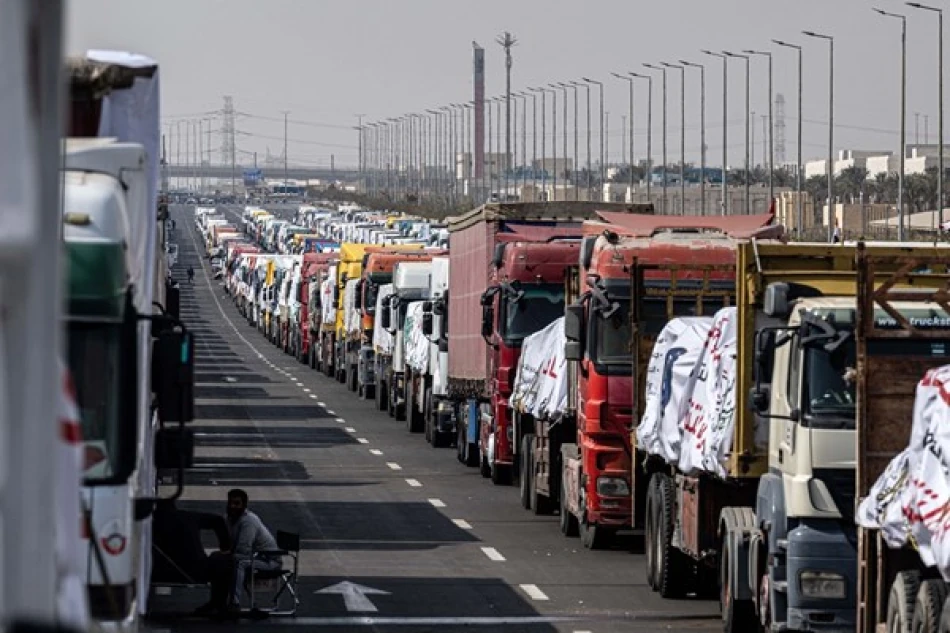
Humanitarian Aid Convoys Depart Rafah Crossing for Gaza, Providing Essential Relief
Egypt Resumes Gaza Aid Shipments as Humanitarian Crisis Deepens
Dozens of trucks loaded with food, medicine, and medical supplies have begun moving from Egypt's Rafah crossing toward Gaza, marking another phase in Cairo's sustained effort to address the escalating humanitarian catastrophe in the Palestinian enclave. The convoy is heading to the Kerem Shalom crossing for entry into Gaza, highlighting Egypt's pivotal role as a lifeline for the besieged territory.
Egypt's Strategic Position in Gaza Relief
Egypt's control of the Rafah crossing has positioned Cairo as the primary conduit for international humanitarian assistance to Gaza's 2.3 million residents. The movement of aid trucks underscores Egypt's delicate balancing act between maintaining regional stability and responding to mounting international pressure to alleviate civilian suffering.
The Rafah crossing, Gaza's only border point not controlled by Israel, has historically served as both a political lever and humanitarian gateway. Egypt's decision to facilitate aid flows demonstrates President Abdel Fattah el-Sisi's administration's commitment to preventing a complete humanitarian collapse that could destabilize the broader region.
Logistical Challenges and Coordination Complexities
Multi-Stage Delivery Process
The routing of aid trucks from Rafah to the Kerem Shalom crossing reflects the complex logistics required for Gaza relief operations. This multi-stage process involves coordination between Egyptian authorities, international organizations, and Israeli security protocols, creating potential bottlenecks that can delay critical supplies.
Unlike direct humanitarian corridors established in other conflict zones, Gaza's aid delivery system requires navigating multiple checkpoints and security screenings, significantly extending delivery times for time-sensitive medical supplies and perishable food items.
Regional Implications and Diplomatic Dynamics
Egypt's sustained aid efforts serve multiple strategic objectives beyond humanitarian relief. By maintaining its role as Gaza's primary lifeline, Cairo preserves its influence in Palestinian affairs while demonstrating to international partners its constructive approach to crisis management.
The aid shipments also reflect Egypt's broader regional strategy of positioning itself as a stabilizing force in the Middle East, particularly as other Arab nations have reduced their direct involvement in Palestinian issues following the Abraham Accords normalization agreements.
Economic Considerations
Managing Gaza aid flows places significant logistical and financial burdens on Egypt's already strained economy. However, the political and security costs of allowing a complete humanitarian collapse in Gaza far outweigh these immediate expenses, making continued aid facilitation a strategic necessity rather than a choice.
The steady flow of humanitarian supplies through Egyptian channels also helps maintain Cairo's relationships with international donors and organizations, potentially securing future development assistance and diplomatic support for Egypt's own economic challenges.
Most Viewed News

 Layla Al Mansoori
Layla Al Mansoori






